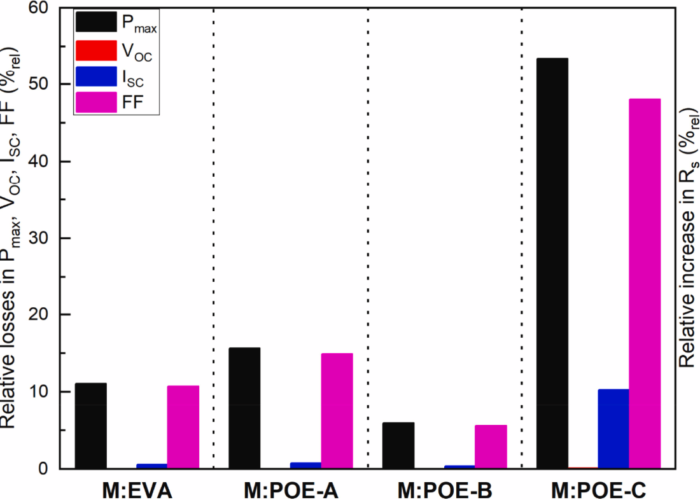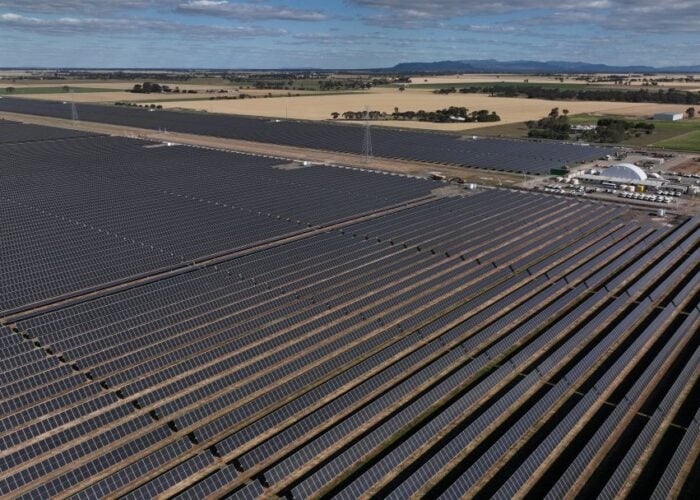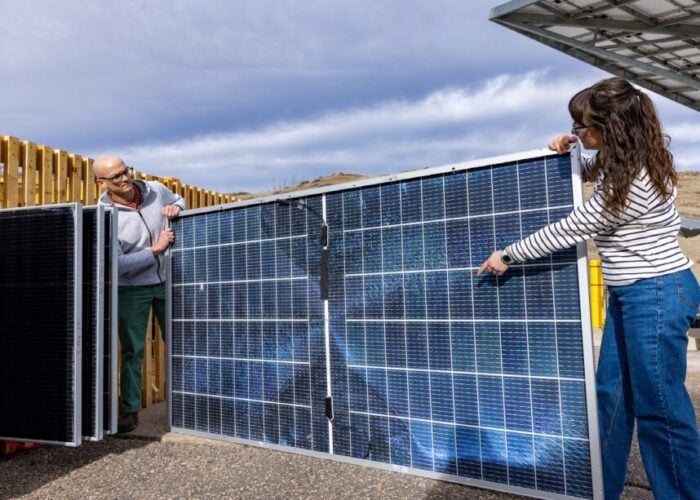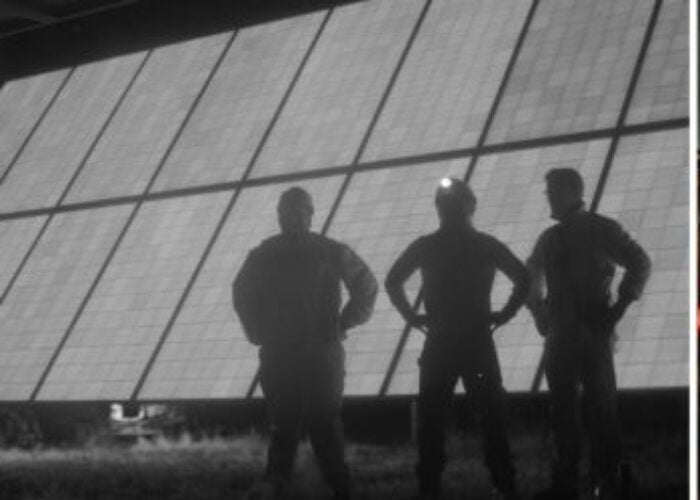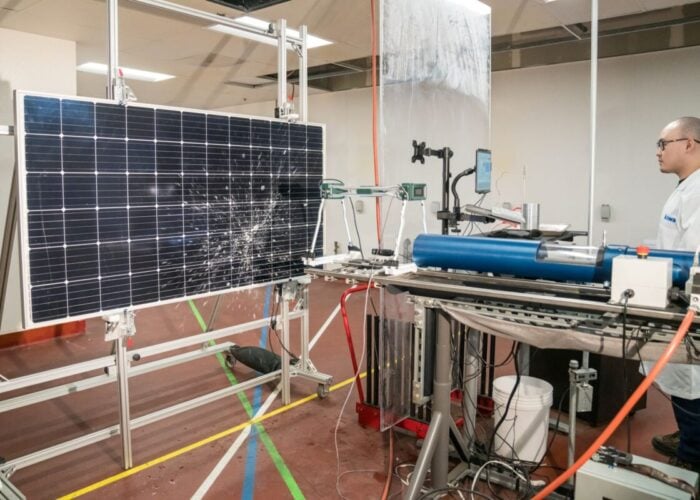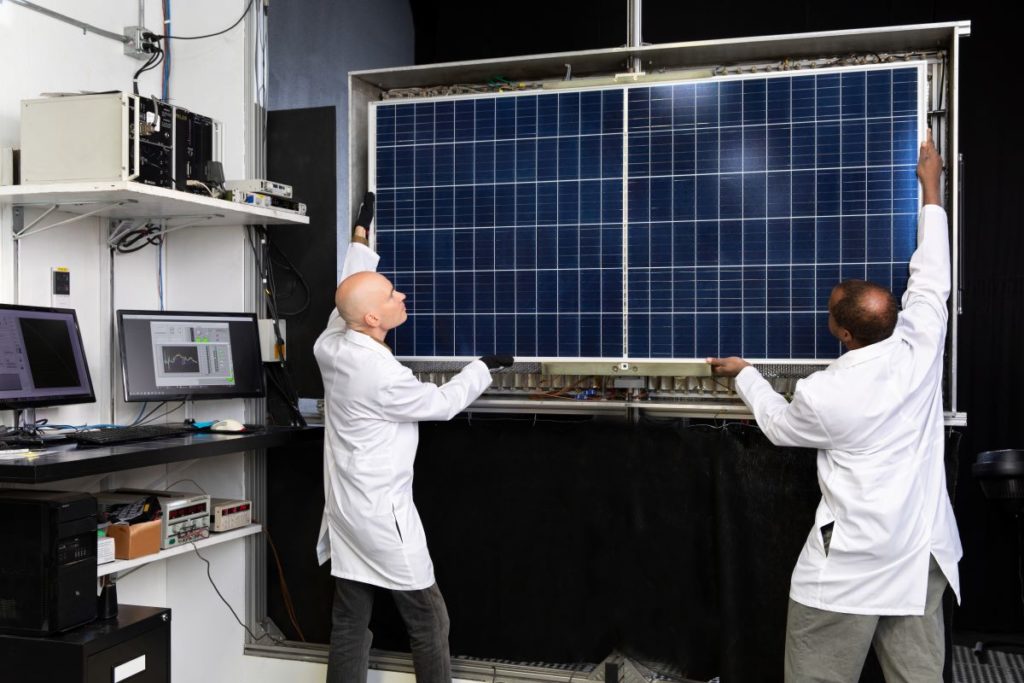
Test lab for solar developers PV Evolution Labs (PVEL) has announced updates to its Product Qualification Program (PQP) with four major changes.
PVEL said notable updates to the PQP include a new test to address concerns around ultraviolet-induced degradation and refocusing the Hail Stress Sequence on identifying the threshold of glass breakage.
Try Premium for just $1
- Full premium access for the first month at only $1
- Converts to an annual rate after 30 days unless cancelled
- Cancel anytime during the trial period
Premium Benefits
- Expert industry analysis and interviews
- Digital access to PV Tech Power journal
- Exclusive event discounts
Or get the full Premium subscription right away
Or continue reading this article for free
Other updates include modifying the Mechanical Stress Sequence to target module mechanical durability concerns, and streamlining processes for light-induced degradation, damp heat, light and elevated temperature-induced degradation, and backsheet durability sequence testing.
“The improvements we’ve made in this PQP update incorporate critical feedback from our downstream partners, research institutes, module and component manufacturers, and our own test results, keeping the PVEL PQP at the forefront of the growing demand for PV module procurement due diligence,” said Tristan Erion-Lorico, vice president of sales and marketing at PVEL.
Erion-Lorico added that the module buying landscape has changed dramatically in recent years with advancements in module technology and new players entering the market. The updated programme is a response to these changes.
PVEL’s PQP testing helps inform the company’s annual PV Module Reliability Scorecard, providing insights for PV module procurement based on data from PVEL’s testing.
In May, PVEL announced that a total of 247 module types from 35 manufacturers had been named “Top Performers” in its 2023 Module Reliability Scorecard, more than doubling last year’s numbers and the highest ever.
This year’s Top Performers were spread across 12 different countries and were produced in Canada, Cambodia, China, India, Malaysia, Mexico, Singapore, South Korea, Thailand, Turkey, the US and Vietnam. Meanwhile, 11 manufacturers had one or more module types be Top Performers in every reliability test, with five of these model types also Top Performers in energy yield (PAN) performance.
However, nearly one-third of the bills of materials (BOMs) tested suffered at least one failure during testing.
After the publication of the Module Reliability Scorecard, PV Tech Premium talked to Erion-Lorico about the emerging trends and themes from this year’s scorecard, differences between glass-glass and glass backsheet and how the increased power loss in the potential-induced degradation testing.

